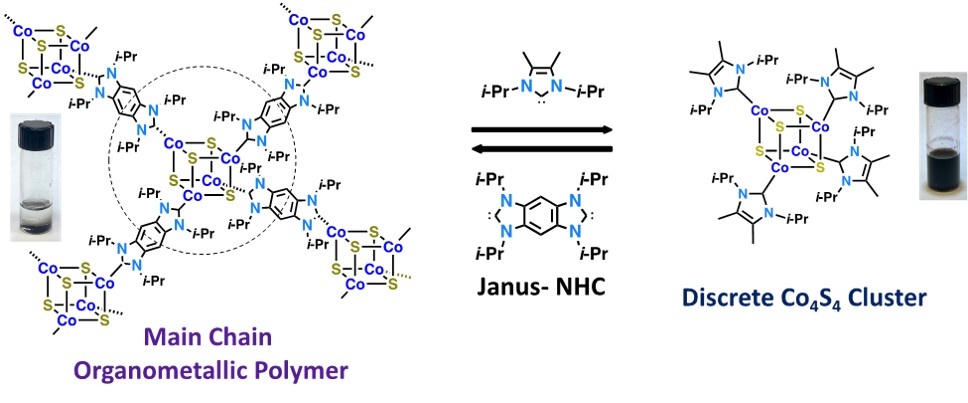The main goal of this project is to use synthetic molecular clusters as building blocks to
assemble a new class of multi-dimensional coordination solids.
Research Mentors
Christopher Bejger (CHEM)
Description
We will design and synthesize framework materials comprised of metal sulfur clusters crosslinked by organic ligands. Synthetic analogues to traditional transition metal dichalcogenides (TMDC) using molecular precursors are needed to prepare functional materials by design. Incorporating nanometer sized clusters, into high surface area frameworks will allow for rational modification and new materials with applications in nanoelectronics, optoelectronics, and catalysis. We have recently prepared amorphous, low surface area materials from Co4S4 clusters and bis-N-heterecyclic carbene (NHC) linkers. This project will focus on strategies to enhance crystallinity in second generation polymers.
Figure 1. (a) A new organometallic polymer. The material can be reversibly disassembled and soluble, metal-sulfur-cubane building blocks can be extracted from the solid.
REU Students’ Role
The students in Dr. Bejger’s lab will learn how to synthesize molecular clusters and NHC ligands using air free inorganic synthetic techniques. These molecules will be used as precursors for synthesizing framework materials. The new compounds will be characterized using nuclear magnetic resonance and absorbance spectroscopies, and electrochemical methods. New frameworks will be structurally characterized using X-ray diffraction. In addition, the charge transport and surface areas of the materials will be studied.

